Experts have cautioned consumers and businesses alike that a recession is looming, and the nation’s period of expansion will soon come to a screeching halt. But with the uncertainty COVID-19 has brought to the workforce, new economic data is predicting a recession may occur sooner rather than later.
The novel coronavirus has ravaged jobs, taken a significant toll on the stock market, and left millions of Americans unemployed. Though the virus has only been present in the U.S. for only a month or two, updated reports from Bloomberg Economics say the chance of a recession occurring is now at 100%, and it will happen within 12 months.
Americans on both sides of the political spectrum are in agreement that COVID-19 is leaving the economy in a bleak state.
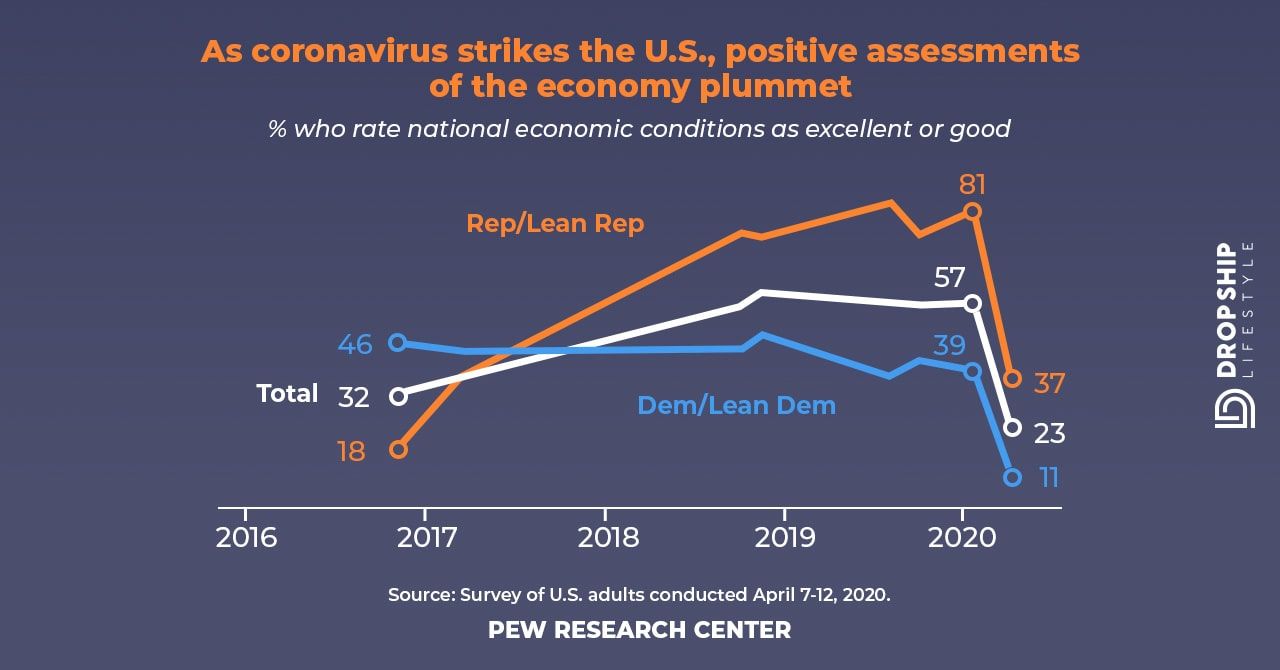
Although a recession, whether it’s already begun or not, will disrupt the current flow of the market, an economic downturn isn’t always bad news for business owners. In fact, staying prepared and getting ahead of the curve can not only leave business operations running as usual but some companies can find ways to thrive during the change as well.
eCommerce businesses are arguably in one of the more difficult positions to survive an economic downturn, and your preparedness as an owner will make or break operations when times get tough. Though there’s no one-size-fits-all guide for flourishing during difficult times, the following tips will help you prepare your eCommerce business for a possible recession, and perhaps even come out on top.
How Could A Recession Impact Your eCommerce Business?
Both brick-and-mortar and eCommerce businesses alike are susceptible to hardship when a recession strikes. And although eCommerce businesses don’t always face the same expenses that a brick-and-mortar company typically incurs, eCommerce operations are still left just as vulnerable.
The actual impacts of a recession depend on a slew of factors including the cause of the disruption and length of the downturn, making it challenging to predict how your unique eCommerce business will respond. But, based on past recessions, we can assume:
- Consumers will spend less money than usual, typically due to their personal financial struggles or apprehension towards the new situation
- Businesses within the same market will need to compete harder to maintain sales
- Inflation may occur in an effort to make up for decreased sales from anxious consumers
Your eCommerce business is unique, and depending on your market, current business health, and more, the effects of a recession can sting more or less for your company than others. And although there’s no way to predict exactly how, or if, your business would suffer, the best defense is an excellent offensive strategy designed to keep your company afloat.
5 Tips to Prepare Your eCommerce Business for a Recession
As an eCommerce business owner, your combat strategy against a recession should focus on the intangible – advertising, brand promotion, and omnichannel marketing.
With the cost of operations continuing to rise as your sales take a hit, you’ll need to know how to carry on digitally to make up for the hardships on your radar. Whether you’ve already begun to prepare for financial changes or are just getting started, the following tips will help you round-out your strategy and mitigate damage to your business.
1. Focus on Your Best-Sellers
Although it might be tempting to throw your advertising budget towards a variety of products that your business offers, save your money and focus on your best-sellers. During a recession, you’ll need to conserve where you can and focus on opportunities that give you the best return for your efforts.
Think about which products are the most popular among your consumers, and consider bringing other product marketing to a halt. In turn, this narrowed marketing effort may bring in even more essential income.
Counterpoint
You can also do the opposite of this. If several of your larger competitors are fighting tooth and nail for sales of one particular item, you can leave them to squabble over it. Then, identify the products they're neglecting and target them instead. This way, you don't blow through your daily ad budget on one high-contest item.
2. Increase Your Customers’ Value
With an in-depth look at your current customer lifetime value (CLV), you can increase the value of your customer base even amidst an economic disaster.
Your CLV is a metric that defines how much money a customer will spend on your business over time. Knowing this metric and the cost to acquire each customer, you can begin to crunch the numbers and use them to your advantage.
Analyze your existing customer base, and consider how you can keep those same customers coming back. Consider possible incentives such as free shipping, other discounts, or points programs. These can be just enough to entice future sales, improve your CLV, and earn you more money without battling for new customers.
Revisit your cross-sells and upsells. Make sure you're showing your customers relevant upsell/cross-sell items when they're checking out.
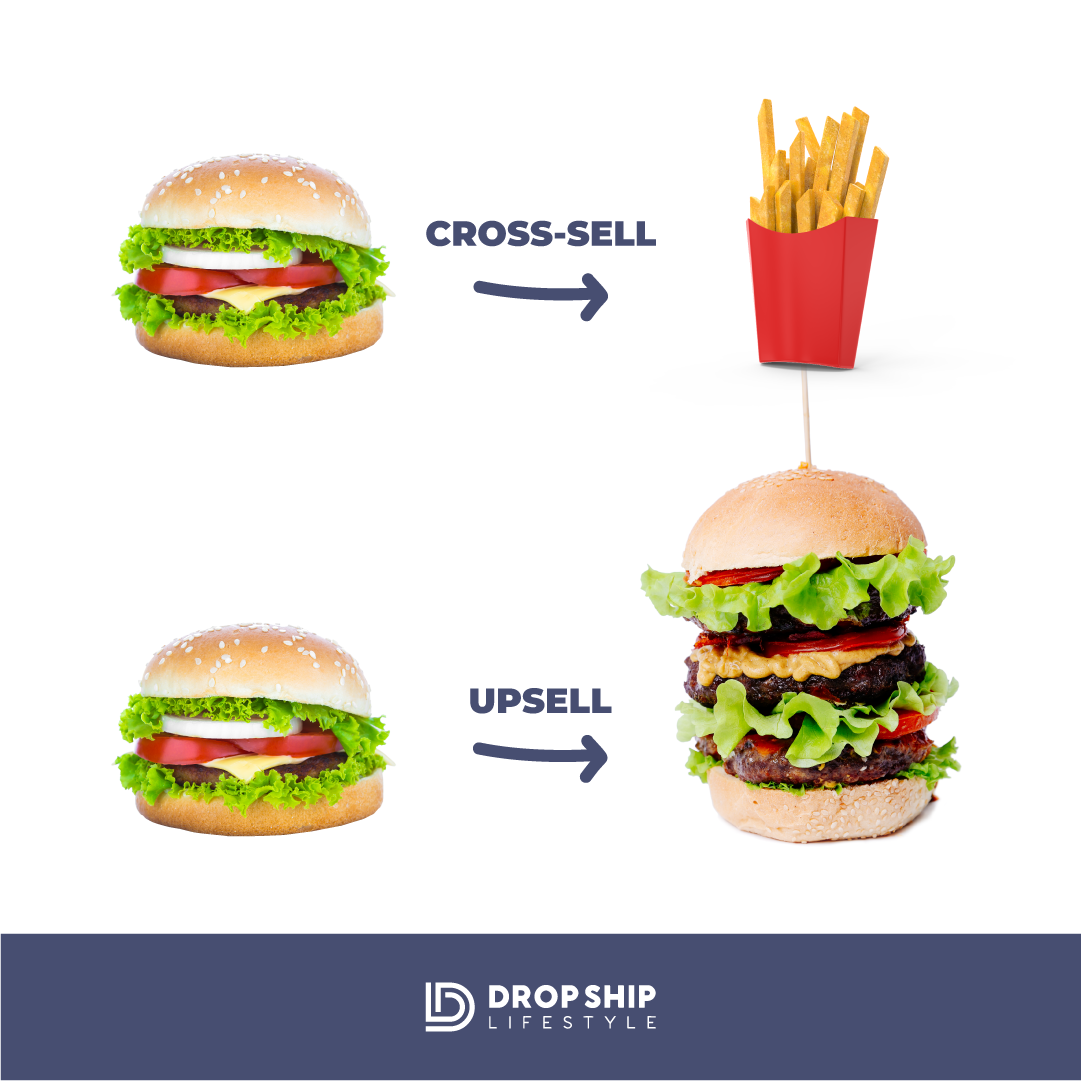
Unsure of cross-sell opportunities? Find out what products people are frequently buying together and use this to inform your cross-sell strategy. Make it simple and quick to add these items to their cart. A check-box that automatically updates the cart when selected is an effective way to do this.
Send new customers a "Thank You" email after they make a purchase that includes popular related items that they might like.
Some customers will not have extra money in a recession and will not be interested in spending more. That's completely fine. The point is to reach customers that do have money to spend and get them the items that they want.
3. Content Is King
Often overlooked is an inexpensive, or even free in some cases, alternative to costly digital advertisements – content creation.
A well-thought-out content strategy is both cost-effective and can deliver comparable results to social media advertisements, PPC campaigns, and others in terms of customer acquisition. While it doesn’t cost consumers anything to read your content, the payoff can be huge for your business if you can successfully prove yourself as a trusted resource in the market.
Create a Content Marketing strategy that focuses on topics that your audience is interested in. Your content can be written, in video form, or both. Are you comfortable going Live on Social Media? If so, this is an easy way to interact with your audience. Just make sure you keep the video focused and professional.
If properly executed, having this content on your site will improve your search engine traffic. This will result in plenty of "free" customers browsing your products daily.
4. Keep Your Spending In-Check
Recessions are brutal, and they aren’t very forgiving if you choose to make a bold financial move. Consider whether you’re truly making a wise decision with every capital expenditure that you make.
While it’s not possible to determine how long an injured economy will take to run its course, determining your overhead is a constant factor whether your business is currently hurting or thriving. A major business purchase may sound like a quick fix to the financial stress you’ve found yourself in due to a recession, but beware that any outrageous spending may hurt you in the long run.
5. Rely on Brand Awareness
When you’re faced with the ominous threat of dwindling sales, your plan of attack should include brand awareness. Although consumers are more hesitant to spend during a recession, staying at the forefront of their minds is the next best thing to securing a purchase.
Don’t be afraid to beef up brand awareness efforts on your business’ social media platforms as well as your personal profiles and employees’ profiles, too. Keeping your brand active and drawing attention to your business on personal profiles not only adds your company to the discussion more frequently, but it shows consumers both you and your team members believe in the brand despite the current hardships. That type of support doesn’t go unnoticed during tough times, and it can even grow your customer base.
Staying Ahead of Recession and Steering Your eCommerce Business to Success
Whether you’ve already begun to take precautions or not, there are always new ways to round-out your strategy and better position your company for success in the midst of changing circumstances. As you prepare to navigate an impending recession, remember to keep the following tips in mind to help your eCommerce business weather the storm:
- Focus your marketing efforts intelligently rather than broadly
- Increase your Customer Lifetime Value
- Create a great content strategy to catch your audience’s eye
- Don’t spend beyond your means
- Keep your brand in the spotlight
As a small business owner, it's your job to always stay one step ahead and make informed changes decisively.

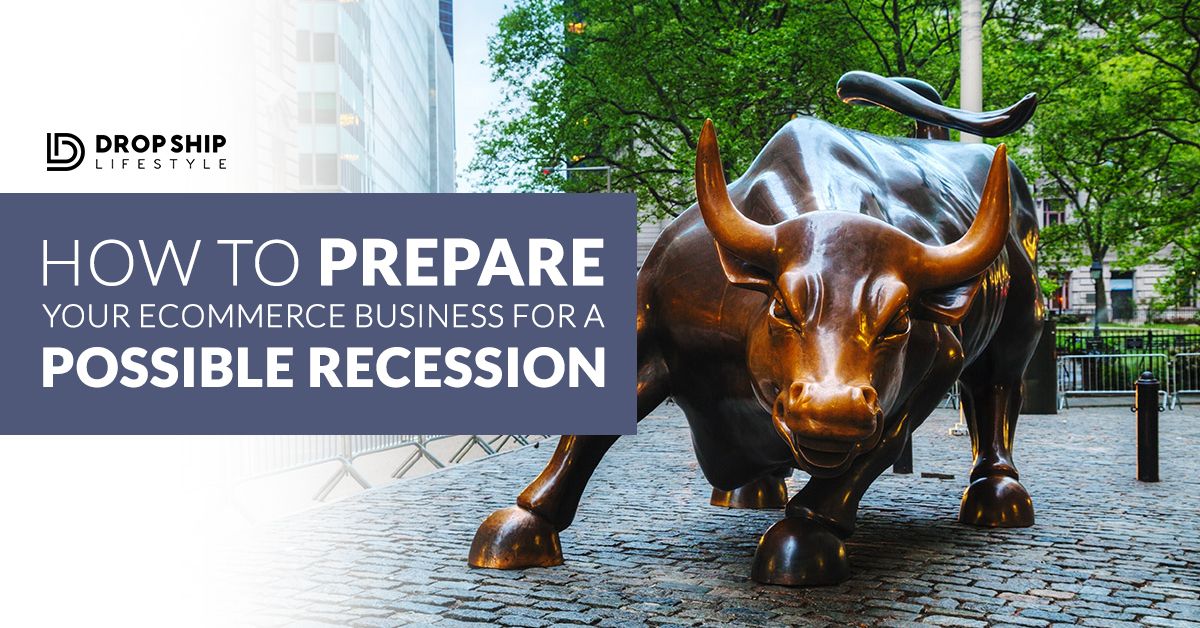

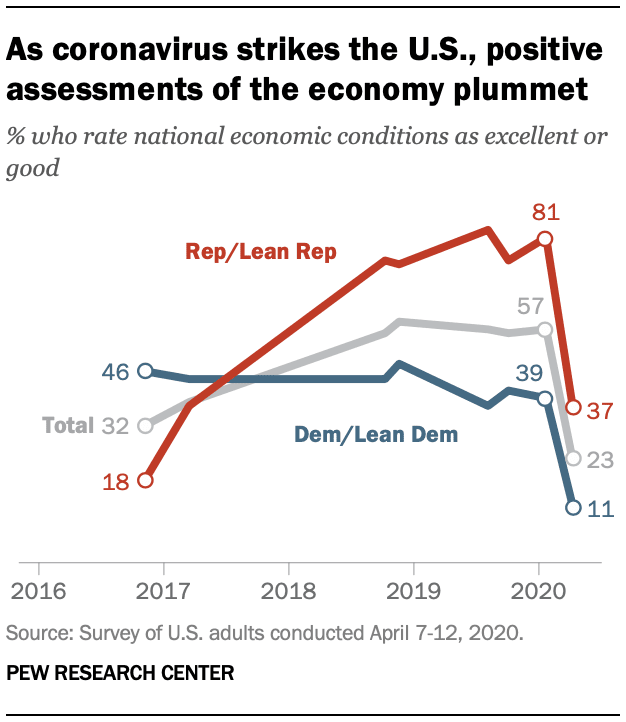
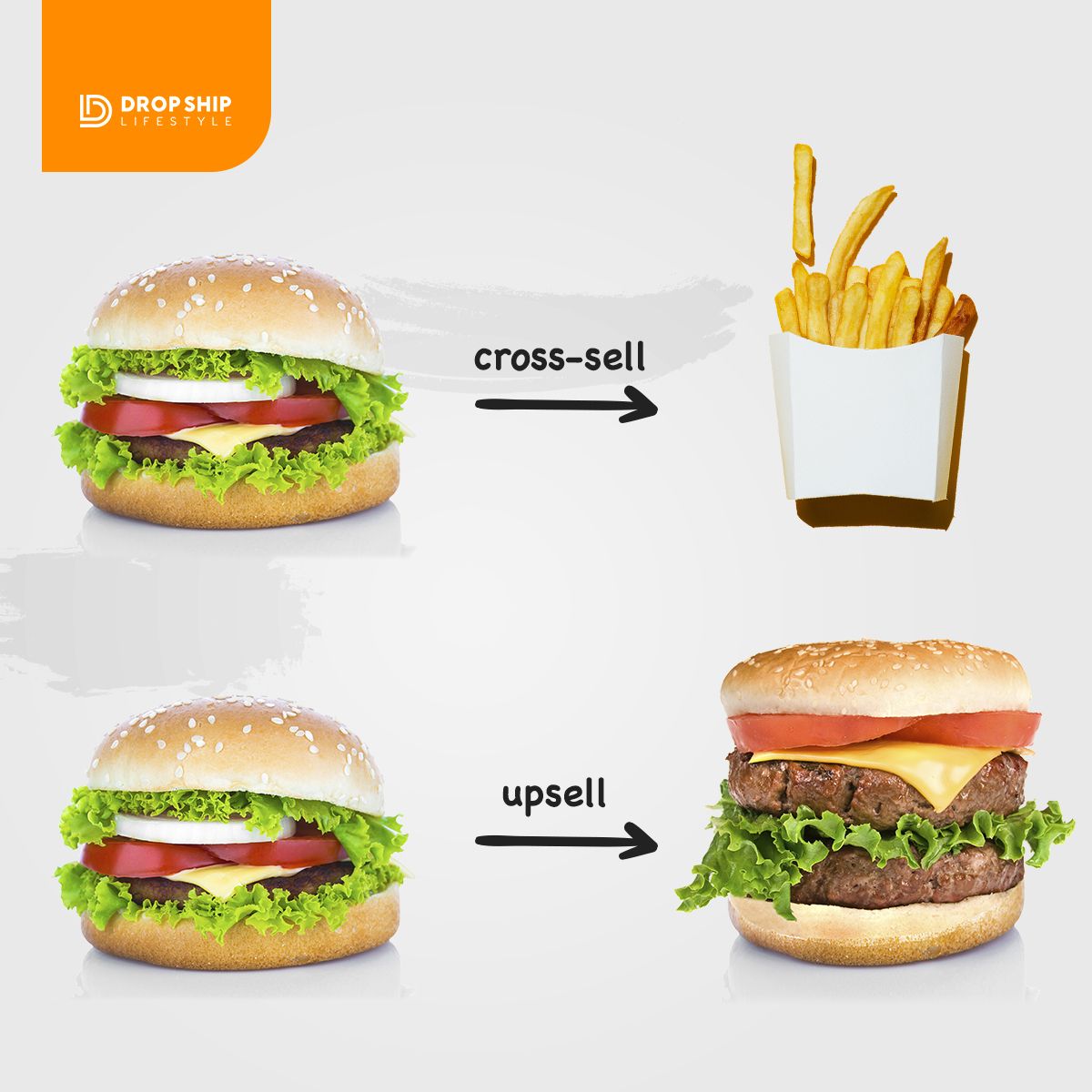
Hey Everyone,
As many of you already know I created Drop Ship Lifestyle after selling a network of eCommerce stores and then trying to find a community of other store owners to network with… What I found was a bunch of scammers who promised newbies they would get rich quick by following their push-button systems!
This led me to create a new community along with an online training program that shares how to build a REAL online business.
I’d love to hear what you think… it’s a 2.5-hour training designed to help you drop ship profitably… all for free.
Be sure to click here to check it out and send me your feedback!
If you go through the “How To Start & Grow A Hyper-Profitable Online Store” webinar and still have questions just contact me and I will help you out.
I don’t know what to do about it?
Hey John,
Check out this post for some more tips:
The Effects of the Coronavirus (COVID-19) on Dropshipping Businesses
I hope that helps!
Anton